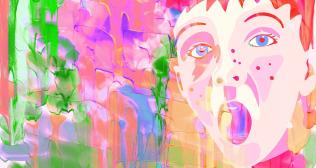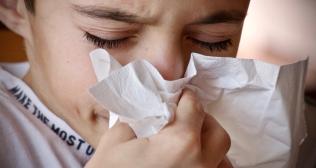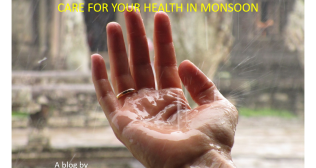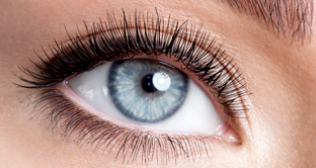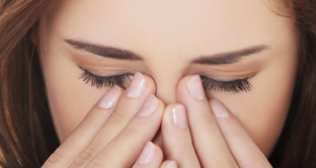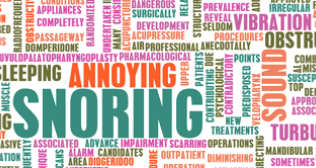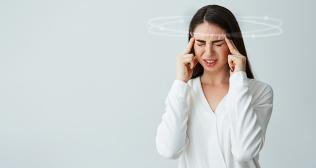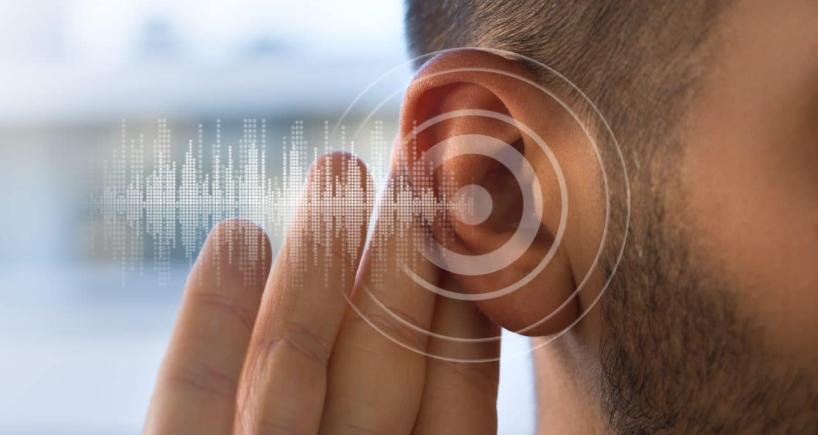
Hearing Loss – Causes, Symptoms, Treatment & Prevention
What is hearing loss?
Hearing loss makes it difficult or impossible to hear speech and other sounds. There are different types of hearing loss, and they can range from mild, moderate, severe, or profound. Some types of hearing loss are temporary, and some are permanent.
What causes hearing loss?
Hearing loss can be caused by a problem in any part of your hearing pathway. This can be from your outer and middle ear through to your inner ear and the nerve to your brain.
Some people are born with low hearing. Other people develop hearing loss later because of a health condition. The most common causes are ageing and being exposed to loud noise.
People who work in loud environments are at higher risk. This includes construction workers, musicians, farmers, miners and military personnel. Listening to loud music with headphones or at clubs or gyms also puts you at risk.
Most people find their hearing gets worse as they get older. Hearing loss can also be genetic
Some common predisposing factors for Hearing loss are:
Before Birth
- Family history of childhood deafness – Deafness in family members
- Consanguineous marriages-Marriage between close relations such as uncle-niece, first cousin.
- Blood group complications or Rh incompatibility –
- Infectious diseases or illnesses during pregnancy (e.g. syphilis, German measles or Rubella with fever, mumps)
- Very poor physical condition of the expectant mother.
- Excessive alcohol or nicotine intake by the expectant mother.
- Intake of ototoxic drugs. (Ototoxic drugs are drugs that can damage the hearing mechanism if used indiscriminately. For e.g. Gentamycin, amikacin, quinine preparations etc.)
- Excessive exposure to X-rays.
During the Birth Process
- Birth Asphyxia (lack of oxygen supply to the new born due to inability to breathe normally resulting in blueness of baby due to various reasons).
- Delayed or feeble birth cry.
- Birth weight less than 1200 grams.
After Birth
- Pre–maturity.
- Deformities of ear, nose, face & throat.
- Jaundice, high fever or convulsions immediately after birth.
- Infectious diseases (e.g. whooping cough, mumps, measles, syphilis, meningitis, viral fever, T.B.)
- Intake of antibiotics for a long duration. (especially those known to be ototoxic)
- Injury to the head and /or ear – (by accidents etc.)
- Continuous exposure to loud sounds. High blood pressure, diabetes.
- Aging
- Tumor on the auditory nerve.
- Middle ear infections, ear discharge etc.
What types of hearing loss are there?
The type of hearing loss you have depends on which part of your hearing pathway is affected.
Auditory processing disorders
These occur when your brain has trouble processing sound. This makes it hard to understand speech or to know where sounds are coming from.
Conductive hearing loss
This is when there is a problem with your outer or middle ear, so sound cannot pass through to your inner ear. It may be caused by:
- ear wax
- an ear infection
- a perforated ear drum
- fluid in your middle ear
- abnormal bone growth in your middle ear (known as otosclerosis)
Majority of these causes are treatable.
Sensorineural hearing Loss
This occurs when there is a problem with your cochlea, which is the hearing organ in your inner ear, or your auditory (hearing) nerve, which carries the hearing sensation to the brain. It may be caused by:
- ageing (known as presbyacusis)
- exposure to loud noise (known as noise-induced hearing loss)
- infections
- Meniere’s disease
- head injuries
- some medicines and chemicals
Sensorineural hearing loss is often permanent.
Mixed hearing loss
With this type, there is both conductive hearing loss and sensorineural hearing loss.
What is presbyacusis?
Presbyacusis is a type of sensorineural hearing loss. Hearing gradually deteriorates as you age because of all the noise you’ve been exposed to over time. It affects about 3 to 4 in every 10 people over age 65.
It is usually caused by a loss of hair cells in your cochlea. Your cochlea contains thousands of hair cells. These pick up sound vibrations from your middle ear and send them as signals through your hearing nerve to your brain. If you have been exposed to a lot of loud noise, this can make presbyacusis start at a younger age.
Presbyacusis usually affects high pitched sounds first. Over time, it affects sounds that are lower pitched. This can cause:
- difficulty telling the difference between the sounds of certain letters
- difficulty understanding people talking when there is a lot of background noise
What are the symptoms of hearing loss?
The first signs of hearing loss can be hard to notice because they usually come on gradually. They might include:
- having trouble hearing in noisy places
- having trouble hearing people on the phone or if they’re not facing you
- often asking people to repeat themselves
- hearing sounds as muffled, as though people are mumbling
- needing to have the TV up louder than other people
- often missing your phone or the doorbell ringing
- hearing buzzing or ringing in your ears
- avoiding situations because you have trouble hearing
Your child might have hearing loss if:
- they don’t startle at a loud noise or turn their head towards a sound
- they start speaking later than other children their age
- their speech is unclear, compared with other children their age
- they want the TV volume up high
- they don’t understand and follow instructions as well as other children their age
- they need people to repeat themselves
- they're struggling at school
What if I only lose hearing in one ear?
It’s possible to lose hearing in one ear from a number of different causes. It is not caused by ageing, which affects both ears. If you have hearing loss in one ear, it’s especially important to protect the hearing in your other ear.
If you have normal hearing in your other ear, you will probably be able to hear and communicate normally most of the time. You may find it harder to hear when there is background noise. This is evident especially if the person speaking to you is on your ‘bad’ side.
You will probably have trouble working out where sound is coming from. Be careful when you’re crossing the road, driving or doing anything else where you need to know the direction of a sound to stay safe.
When should I seek help?
If you are concerned about your hearing and are experiencing any of the symptoms of hearing loss, see an ENT specialist and audiologist for examination and hearing test. A hearing test can check the type of hearing loss you have and how severe it is.it is known as PTA or pure tone audiometry.
What treatment will I need for hearing loss?
If you have a type of hearing loss that cannot be reversed, there are devices available that can help you improve your hearing, including:
- hearing aids
- cochlear implants
- other surgical implants
- assistive listening devices such as personal amplifiers and headphones
- phone apps
What does it mean if I suddenly lose my hearing?
Sudden onset hearing loss occurs when you suddenly lose hearing over less than 3 days. Sometimes people wake up with hearing loss. It may be conductive or sensorineural. This is an emergency.
If you have a sudden loss of hearing, go to your local ENT doctor in emergency
Sudden Sensorineural hearing loss can be caused by many things. These include infection, stroke, head injury, medicines or other health conditions. In most cases, no cause is found. You might also have tinnitus, dizziness, nausea and vomiting and your ear may feel full or blocked.
If you are treated quickly, you will have a better chance of recovery. If no cause is found, you might be prescribed a steroid medicine, which can help your hearing recover. In some people, hearing loss will be permanent.
Sudden conductive hearing loss can also have many causes, such as wax, ear infection, ear syringing or injury. You may also have pain and tinnitus. If it is caused by wax, it may happen after swimming or showering. See a doctor immediately to make sure there’s no other cause and find out what treatment you might need.
Can I prevent hearing loss?
Most types of hearing loss are permanent, so it’s important to prevent hearing loss before it occurs. If you do have damage to your hearing, you can still try to stop it from getting worse.
The best way to protect your hearing is to limit your exposure to loud noises. That means both loud noises on individual occasions, and over the course of your lifetime.
An event or activity is too loud and can damage your hearing if afterwards you hear ringing in your ears, your ears feel full or sounds seem softer.
To prevent damage to your hearing:
- Keep your music, TV and radio down — you should be able to easily understand someone talking one meter away.
- If you use headphones or earphones, keep the volume down. It shouldn’t be loud enough for someone next to you to hear.
- Wear earplugs or ear protection equipment, such as earmuffs, in noisy workplaces and for noisy activities, such as mowing the lawn.
- Take breaks from loud environments if you can.
- If you can, use headphones or earphones that block background noise.
- At clubs, live music events and other loud places, wear earplugs. Take frequent breaks and stand further away from the speakers.
- Workplaces have rules about noise levels. If you work in a noisy environment, you should have access to ear protection. If not, speak to your workplace’s occupational health and safety office
- Immunize adolescent girls and women in child bearing age against Rubella.
- Ensure good health of the expectant mother – seek health check-ups at regular intervals.
- Expectant mother should avoid contact with persons suffering from infectious diseases.
- Make sure that the delivery is performed under the supervision of a trained person.
- Follow the child's immunization schedule properly.
- Maintain good ear hygiene. Keep the ears clean, free from dust, water, wax etc.
- Do not clean or scratch your ears with pointed objects like matchsticks, hairpins, pencils etc. It can rupture the eardrum or injure the ear canal.
- Avoid slap or blow to the ear as it can cause a hearing problem that may be irreversible.
- Keep a watch on young children playing with tiny objects like beads, seeds etc. If they put them in the ear, the eardrum may get ruptured or the ear canal may be injured.
- Do not put oil or any other liquid in the ear as they can result in pain, swelling and ear discharge. Keep your ears dry always.
- Do not swim in dirty water. Unclean water entering the ear can cause ear infection. While swimming always plug your ears with cotton, especially while diving. This prevents the water from directly entering your ear and rupturing the eardrum.
- Do not have your ears cleaned by roadside quacks. They use unclean instruments, which may cause infection. The eardrum too may get damaged. Clean your ears with cotton buds regularly or get them cleaned by a doctor.
- Avoid using unwashed pillow covers, towels, etc., used by a person with ear discharge. This may cause infection in your ear too.
- While feeding a baby keep its head raised otherwise milk may enter into the ear cavity (through the small passage connecting the throat and the ear). It can cause pain with swelling and ear discharge.
- Do not take medicines without the doctor’s advice.
Categories
Clear allMeet the doctor

- ENT | ENT (Ear, Nose and Throat)
-
22 Years
-
1000







